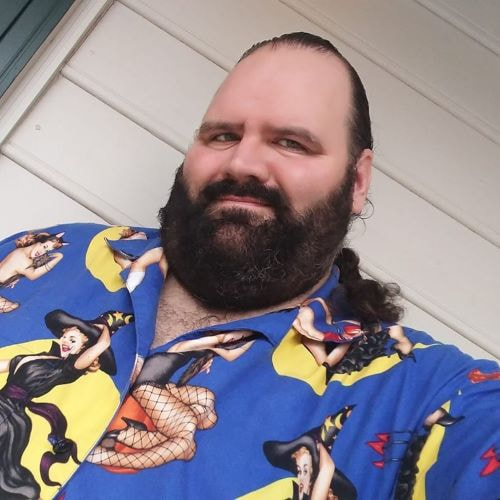There’s a lot of news articles and a court brief involved in this, so let me outline the major players first:
Tucker Thayer: 15 years old. Died of a gunshot wound to the head in the light and sound booth of the Desert Hills High School Theater.
Michael Eaton: Drama teacher at Desert Hills H.S. and director of the production.
Officer Stacey Richan: St. George, Utah police officer, assigned to DHHS as a resource officer.
Robert Goulding: Vice Principal of DHHS
David Amodt: Father of the production’s stage manager.
In the fall of 2008, DHHS was putting on a production of Oaklahoma. Wanting a realistic sound effect, Eaton asked Richan and Goulding for permission to use a gun that fired blanks. All agreed, under the provision that an adult would be the only person to transport, posses, and fire the gun used, that adult supervision would be in place at all times, and that the weapon would be transported in a locked case with no other access other than the adult mentioned above.
(Though there has been some confusion on this point, all three were acting within Utah state law by having a weapon on school property with these rules in place. While I haven’t looked at the laws of the City of St. George or Washington County, Utah law considers firearms possession lawful if “approved by the responsible school administrator” (Goulding, in this case), and “the item is present or to be used in connection with a lawful, approved activity and is in the possession or under the control of the person responsible for its possession or use.” (Utah Code, 76-10-505.5 (4) (b-c). So, while it wasn’t necessary and proved to be ultimately tragic, possession under the rules they established together was legal.)
Amodt volunteered use of his personal .38 revolver. At first, all of the above rules were followed. Then, at some point, he began allowing Tucker to shoot the gun during rehearsals, and Tucker knew the combination to the gun’s lockbox at some point as well.
On November 5, 2008, Amodt could not attend rehearsal, sending his wife with the gun in his place (after gaining Goulding’s permission by phone). Mrs. Amodt put the case in her daughter’s pack, accompanying her to rehearsal. Along the way, they encountered Richan(pg 4-5), who indicated that Eaton knew the rules and all was well.
On November 15, 2008, Amodt and his daughter left her pack (with the gun case inside it) inside the booth. Both left the booth, attending to other tasks. Soon afterwards, Tucker entered the booth and shot himself in the temple with a blank. The expanding gas cloud drove skull fragments into Tucker’s brain, and he died later that night.
In May of 2009, Thayer’s parents filed a lawsuit against Eaton, Richan, Goulding, Amodt, Washington County Schools, and the city of St. George.
In December of 2009, Goulding and Eaton tried to be dismissed from the lawsuit, citing the Utah governmental Immunity Act. The case is currently being looked at by the Utah supreme court.
Amodt and the Thayers settled sometime between 2009 and 2011.
On February 2, 2012, a judge dismissed Richan and the city of St. George from the suit.
The rest of the case is still ongoing.
Something of note here is that Tucker was an accomplished shooter. As a Boy Scout, he held 2 shooting merit badges and was a range instructor the previous summer. But he wasn’t familiar with either pistols or blanks.
But what I do not see is any indication that cast and crew were shown the dangersinvolved in using that weapon as part of the show.
In the end, if nothing else, 2 big things need to be remembered as a result of this tragedy.
#1: Complacency kills.
Those two words were painted just at the edge of “the wire” on every single base when I was fighting overseas, and they applied here. Had the adults involved in this tragedy followed their own rules, and followed them diligently, Tucker would still be alive.
#2: If you’re going to do it, do it right.
One of the things that scares the piss out of me about the theater scene today is the rapid increase in firearm use without a corresponding increase in firearms education. Despite the considerable efforts of some, movements to add firearms education to an actor’s skill set are few and far between. University programs are understandably reluctant, given that we live in an age that’s post-Columbine, post-NIU, post-VA Tech, and so on. The professional world is not much better, with far too many of the U.S.’s major theatrical cities also being some of the most unfriendly to firearm owners in the country. Even if actors in cities like L.A., NYC, D.C., or Chicago are willing to pursue their own education, onerous laws make it expensive and difficult at best and damn near impossible at worst to do so.
Here’s to hoping the future changes for the better.


 RSS Feed
RSS Feed
